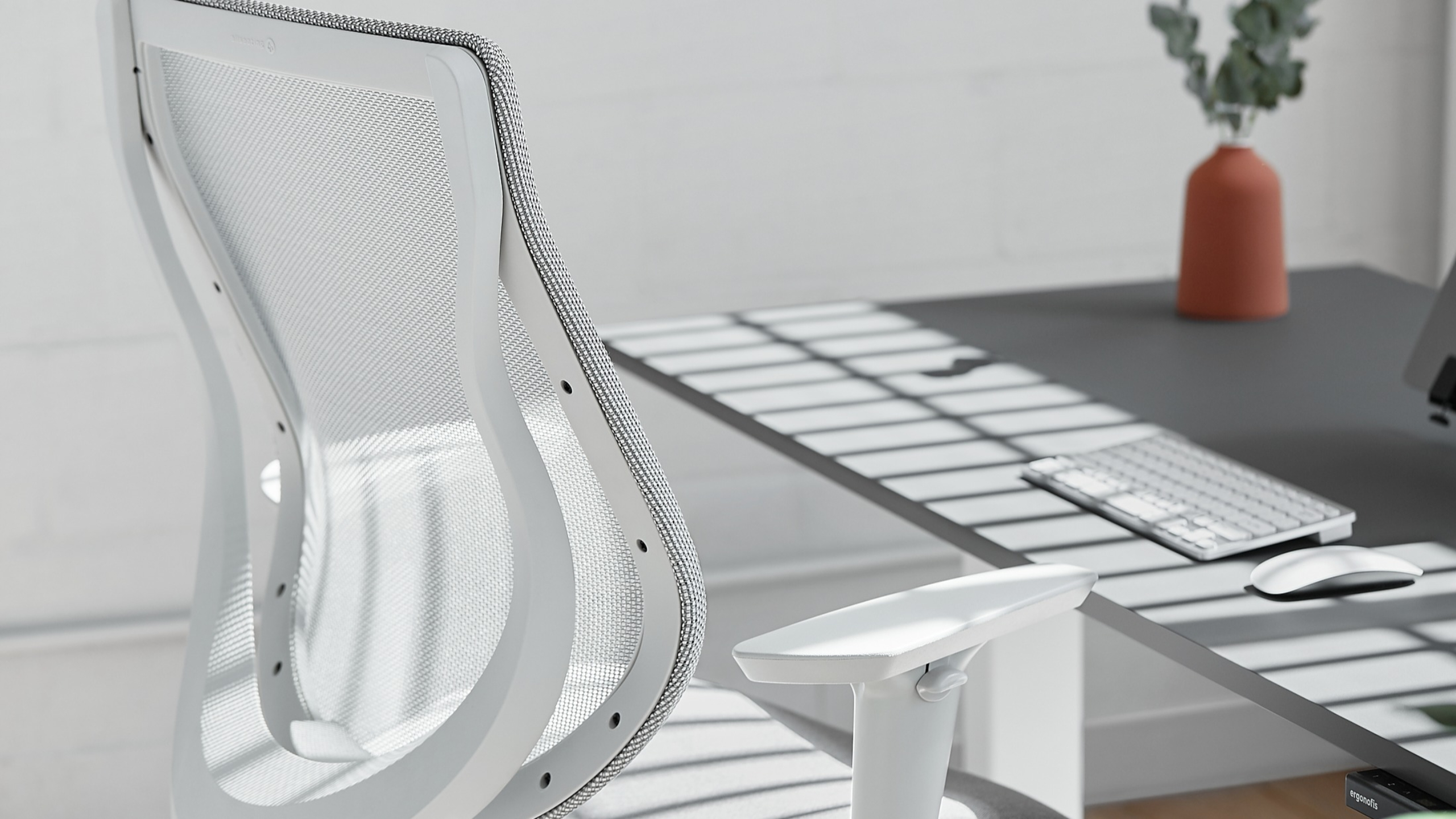What is the best type of office chair for long hours?
Ergonofis Lead Industrial Designer Kim L. Beaudoin gives three tips to finding the best office chair for long hours

If you are looking for a great ergonomic task chair that will be comfortable as you’re working long hours, there are two main things you need to look for; adjustability to conform to your physique and freedom of movement. The rest comes down to preferences, but there are pros and cons to construction types in the best office chair.
Range of adjustability
Unless you’re one of the lucky few that stands proudly on the top of the bell curve of the population in height, weight, shoulder width, etc., you’re likely to need a good range of adjustments to make the chair conform to your body. A chair that doesn’t fit well will not offer the support you need and will only strain your muscles, leading to aches.
Nowadays, seat and armrest height adjustments are offered on even the most basic chairs. Still, you might consider looking into armrests with width adjustment and even sliding/rotating arm pads if you have larger or narrower shoulders. These will allow you to keep your arms vertical and closer to your body as you work, avoiding unnecessary stress on your trapeze and neck.
A seat slider is also a great feature to adjust the depth of your seat. A too-short seat will not support you enough and give you the impression of falling off your chair, while a seat too deep might push against your calves and restrict blood flow. We usually recommend adjusting your chair so that you can fit two fingers between your calves and the seat’s edge.
Another key adjustment to look for is an adjustable lumbar curve or support on the chair’s backrest, especially on mesh-type chairs. The lumbar spine holds most of your upper body weight, so it is very important that your task chair appropriately supports it. Since everyone’s lumbar spine is shaped differently in height and curvature, you will want a system that allows you to shift vertically the contact point of your support. Hence, it meets the apex of your spine, then varies its depth or pressure until it matches its curvature for proper support.

Kim L. Beaudoin is a Montreal-based Industrial Designer for Ergonofis, a sustainable home office brand, known for their solid wood standing desks. After graduating from Université de Montréal, at the top of his class, Kim then worked as a light fixture designer before making the jump to furniture. Several of his projects have received recognition internationally, including 3 prizes from the Red Dot Design Award.
Freedom of motion
Finding a chair that can adjust to fit your body is great, but even if you were to mold a chair with a seat and backrest that fits perfectly to your body, you would start to ache after a few hours of standing still. The human body evolved for physical activity, so it’s important to keep a good habit of stretching and moving often to keep the blood circulating in your muscles, even sitting to work.
A backrest with a good tilt mechanism, such as a synchro-tilt or weight-activated, is great for that purpose as it allows your back to flex and stretches as you’re sitting while keeping your feet grounded. Keep the tilt unlocked and adjust the tension to your needs. That extra flexibility from the tilt will add to your back’s comfort and be ready to hold you properly as you rock backward.
Are you a pro? Subscribe to our newsletter
Sign up to the TechRadar Pro newsletter to get all the top news, opinion, features and guidance your business needs to succeed!
Great chairs are also designed with a lot of clearance to allow motion from your legs, upper back, and shoulders. Some even feature a flexible backrest and seat pan to increase that range of motion while keeping good support. Avoid chairs designed to look like bucket seats in a race car. They may give the impression of support, but their deep, stiff seat and backrest constrain you into a very rigid position. It would be a great design if you had to sustain an acceleration of up to 5G while you’re working, but it has yet to happen to me while sitting at a desk.
Construction types preferences
The rest usually comes down to personal preference. Upholstered foam on the seat or backrest is often plush and very comfortable but not as breathable. This is especially true if you pick a leather upholstery that can feel sticky in a hot environment and will have a stiffer feeling, only softening up as the leather develops its patina.
Mesh constructions, however, have great airflow and are perfect if you run hot while sitting. They offer a bouncier feel and support but require a very rigid frame that you will feel as you get closer to the edges.
I personally favor the combination of a foam seat with a mesh backrest construction. The airy mesh offers great support and that comfortable bouncy feeling, while the foam seat allows me to shift my legs around and even sit cross-legged a few minutes a day, which would not be comfortable on a mesh seat due to the hard edges on both sides.
Nonetheless, even if you have the greatest chair on earth, it’s always better to change positions occasionally. Get up and stretch or take a short walk. Consider investing in a height-adjustable desk to vary from working posture between seating and standing.
Kim L. Beaudoin is a Montreal-based Industrial Designer for Ergonofis, a sustainable home office brand, known for their solid wood standing desks. After graduating from Université de Montréal, at the top of his class, Kim then worked as a light fixture designer before making the jump to furniture. Several of his projects have received recognition internationally, including 3 prizes from the Red Dot Design Award.